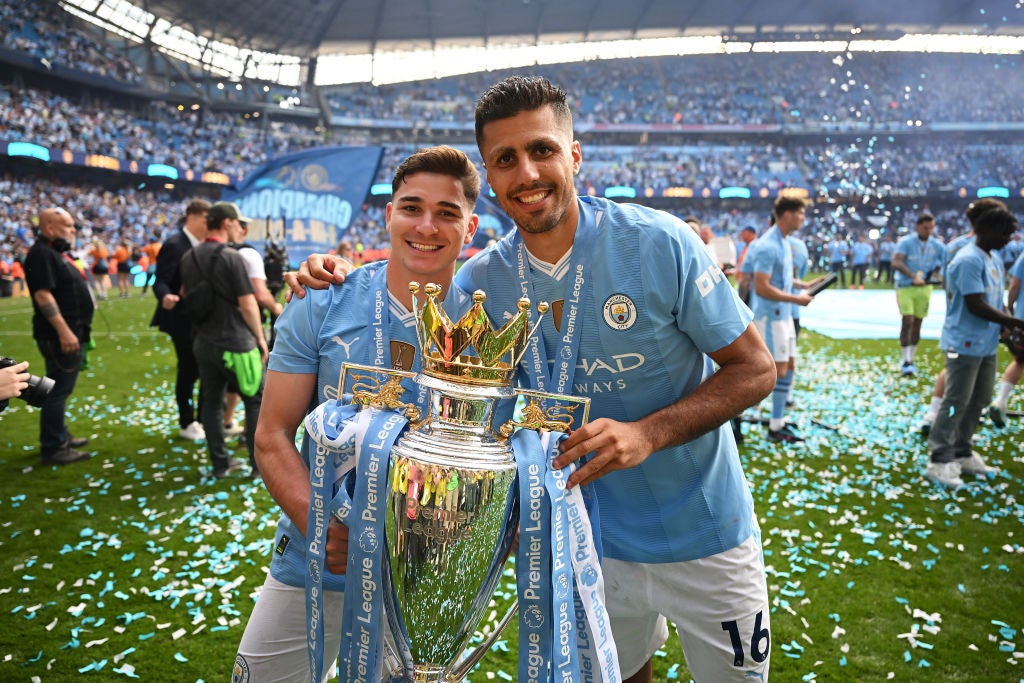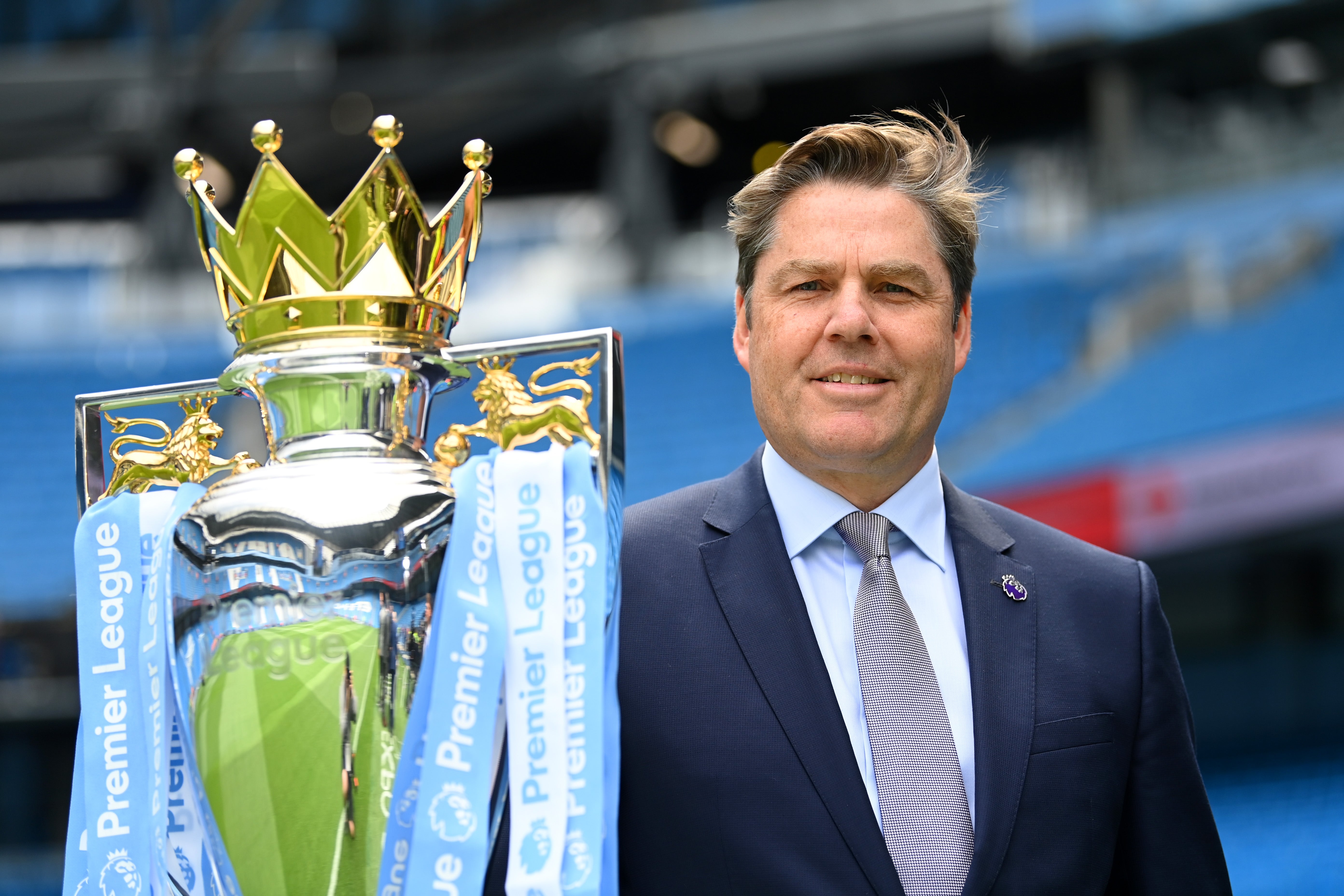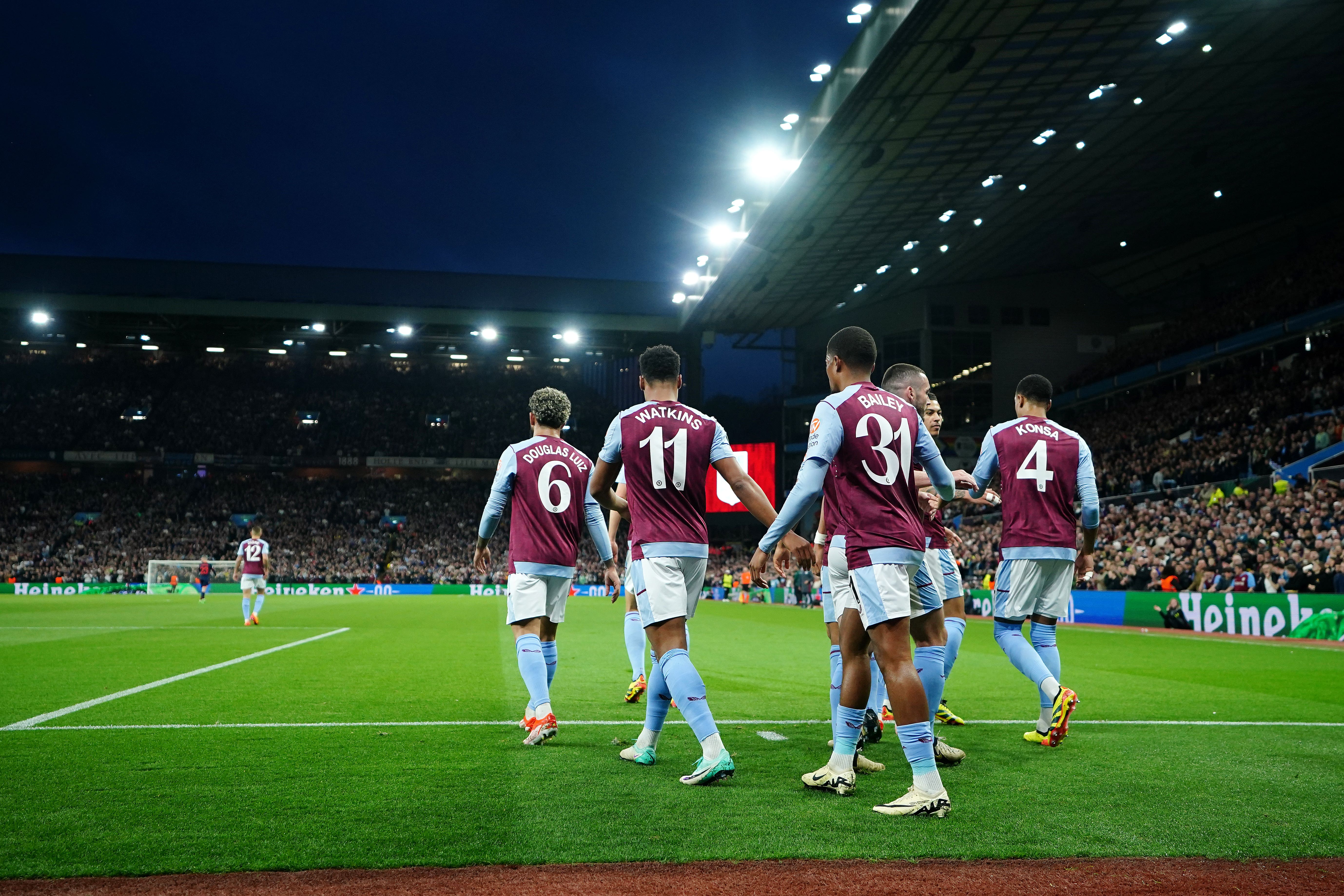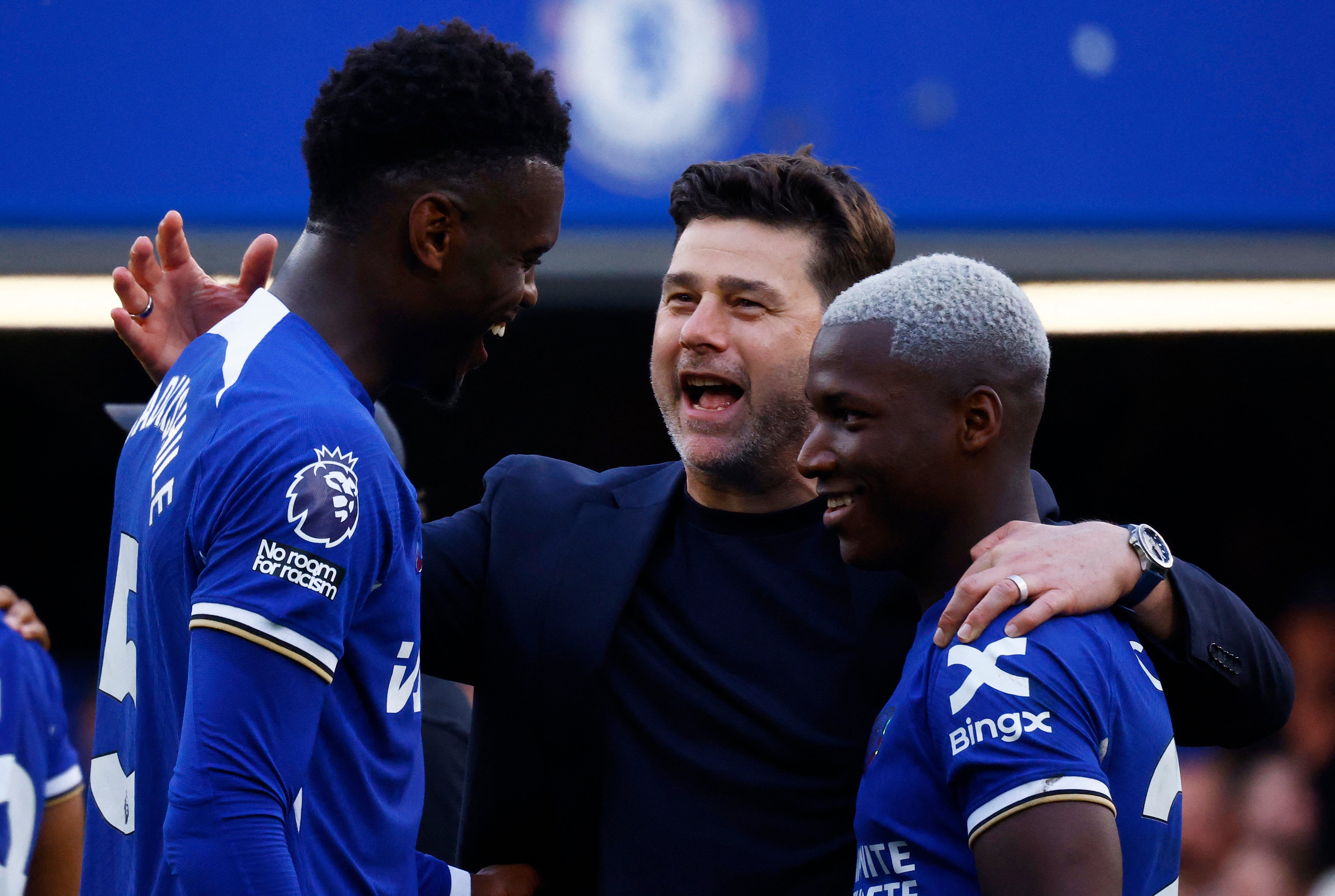
By the time the title was confirmed, none of the other 19 Premier League clubs felt like extending public congratulations to Manchester City. There were no “classy touches” on the social media pages. That points to how that world has changed, but also at a tension in the boardrooms that is far more perceptible than any on the pitch. City won all of their last nine games with relative ease.
The Premier League chief executive, Richard Masters, didn’t even attend the decisive title match. He was instead at Arsenal, ensuring this season didn’t end with the competition’s senior figure handing over the trophy to the club they have been investigating for more than five years. Early suggestions from the broadcasters are meanwhile that one of the most watched events of the day was Jurgen Klopp’s farewell, which certainly had more viewers than that trophy lift.
These are unexpectedly fitting endings for the entire 2023-24 season, since there has never been a campaign where it felt like so many of the most important developments were away from the pitch. That investigation into the champions is ongoing, with the Premier League so conscious of “confidentiality” that Masters wouldn’t even confirm the date of its hearing. This was all as two other clubs were punished for breaches of the competition’s financial rules, in Everton and Nottingham Forest, with points totals changing three times.
That created the farcical precedent of the table not necessarily telling the full story at given moments. It’s a situation that can be poisonous for sport, since the basic social contract here is that supporters trust what they’re seeing on the pitch. There was instead constantly some controversy to divert the eyes.
Chelsea are facing another investigation, from a long period over the Roman Abramovich ownership. Even the story with the most long-lasting and historic effects, which was Klopp’s departure, was of course off-pitch. That at least had a nobility to it, even if he admitted he had been left exhausted by the rigours of this division – not least trying to keep up with City.
By the time that Forest publicly questioned the integrity of an official, amid a crisis over VAR so great that Wolves have put forward a motion for its abolition, the line from executives was that “it’s all a bit Serie A in the 2000s”.
Certainly, the 2023-24 season was one where lawyers have never been more important. Executives say so many Premier League meetings consist of legal details and caveats.
This will be the campaign’s main legacy. It might be a landmark season in moving the decisive action from the pitch to legal cases.

It certainly puts the Premier League in a complicated position, as it approaches middle age and what you could say is a mid-life crisis. English clubs didn’t even do that well in Europe, enduring their worst season in over half a decade. There were many moments when it looked like teams had been out-thought by those who didn’t have the same resources.
The Premier League’s financial power will almost certainly ensure that is only temporary, since they tend to just buy up the best of elsewhere. The refreshing Andoni Iraola was an illustration of that but it still suggests a lack of nimbleness about the competition as a whole. After 32 years, the Premier League has now become top-heavy with a build-up of so many issues – exactly like the previously dominant Serie A two decades ago.
Even the domestic broadcasting contracts showed the first signs of faltering. While the total cost of the latest deal went up, the price paid per match has dropped. The apathy around City winning a historic fourth successive title won’t exactly help.

The competition is now so cumbersome that it wasn’t like there was much movement beneath City, either. The most surprising development on the pitch was Aston Villa reaching fourth. This was a huge overachievement from Unai Emery and a badly-needed new face entering the fray since this great club have never been in the modern Champions League at all. The last time they were in the competition was when it was still called the European Cup and they were the continent’s champions, back in 1982-83. A very different world.
Illustrating the latter, many rivals would still point out that Villa’s wage bill is extremely high, and they have been close to busting through Profit and Sustainability Rule limits. It was telling that Villa were one of just three clubs who opted against a proposal to vote on new “anchoring” rules – where clubs could only spend a figure linked to what the bottom club receives – in what would be one of the Premier League’s more progressive moves.
Some change is needed. The three that came up went straight back down. They will be replaced by at least two who were relegated the season before. One of them, Leicester City, face their own cost-control issues.

Beyond that, though, what was there? Arsenal incrementally improved, to the point they actually won 16 out of their last 18 games. That level of near-perfection still wasn’t enough. Manchester United continued to descend into farce, although the most important development of their season was also off the pitch. Sir Jim Ratcliffe bought 27.7 per cent of the club to at least offer the idea that something might change.
Financial stratification has otherwise caused a sense of stasis in the Premier League. This is something else that has been building up for years.
The great irony is that the quality purchased still produced magnificent games, that enriched the usual abundance of storylines. There were so many ludicrously high-scoring matches, especially among the top teams, with the pick of them arguably Chelsea’s 4-4 draw with Manchester City. That represented a serious statement from Mauricio Pochettino amid a wider circus at Chelsea, to go with Roberto De Zerbi’s rapid rise and fall, Phil Foden’s ascendance, Marcus Rashford’s stagnation, Kai Havertz’s reimagining, Luton Town’s resolve and Ange Postecoglou’s varyingly admirable dogmatism.

And yet it’s still like one of those TV shows where a lot of explosions and jaw-dropping moments happen until, you get to the end of it, and realise the plot hasn’t actually moved on. That feels like the case with so much of the Premier League right now, as is best illustrated by the uncertainty over the champions.
This may yet rise to more serious issues, too. Everton face genuine financial difficulties that could put jobs at risk. Chelsea’s investigation is going to cover several years from the completely reframed Abramovich era.
Given that Leicester actually started their own last Premier League era by agreeing an FFP settlement with the EFL, it means there is at least the potential for questions over the champions of 2010, 2012, 2014, 2015, 2016, 2017, 2018, 2019, 2021, 2022, 2023 and now 2024. That could see the competition’s history entirely reframed. Much of that will be settled by lawyers, which is looking a lot like the Premier League’s future.







